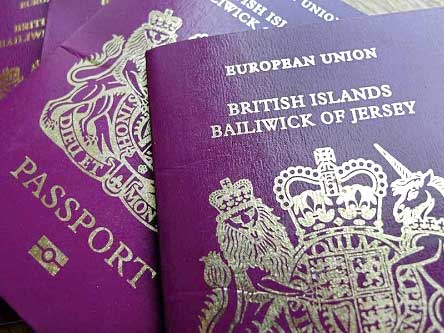Residence in Jersey
Not so well known as a jurisdiction to relocate to, Jersey can actually be an attractive option for wealthy families from around the globe. Located just off the coast of France, Jersey offers wealthy families political and economic stability, an English school system, a moderate climate, stunning nature and an interesting mix between the English and French cultures. Wealthy families that take the decision to relocate to Jersey can apply for Jersey’s ‘High Value Residency’ status.
Jersey’s history
Jersey (official name; Bailiwick of Jersey) is one of three British crown dependencies, the other two being Guernsey and the Isle of Man, which are all independent and therefore not part of the United Kingdom. For several centuries in its early history Jersey was under the influence alternately of France and of England. As early as 1259, when the Treaty of Paris was signed, Jersey acquired its status as a self-governing territory of England (later the United Kingdom). Today there are approximately 100,000 people living in Jersey.
Source: https://www.jersey.com
Jersey’s government & economy

Jersey is not part of the European Union (EU), but has a special relationship with it due to its close connection to the United Kingdom. As a result of this relationship Jersey benefits from being part of the EU’s free trade zone for goods and services. Its currency is the Jersey pound, which is not an official currency in its own right, but an issue of coins and notes denominated in pound sterling (GBP) under Jersey’s currency union with the United Kingdom. Both the Jersey pound and pound sterling are legal tender in Jersey.
Jersey’s two main economic pillars are financial services and tourism. Private banking and trust management are two of the most important financial services offered. Most of the island consists of agricultural land, although in numbers agriculture hardly contributes to Jersey’s economy. The island is internationally regarded and respected as a well-regulated jurisdiction.
Taxes in Jersey
Jersey has an uncomplicated income tax system. It taxes the income of its residents with a so-called flat-rate income tax.
- Personal income tax: Families living in Jersey pay income tax at a flat rate of 20%, regardless of the source of income. Capital gains are not included in the income tax base, and are therefore not subject to taxation.
- Wealth tax: There is no wealth tax in Jersey.
- Inheritance- and gift tax: No inheritance and gift taxes are levied in Jersey.
- VAT: Jersey levies a Goods and Services Tax (GST) at a flat rate of 5%. Some services are GST-exempt.
- Exit tax: When you leave Jersey to relocate to another jurisdiction, Jersey does not levy an exit tax.
Source: The International Bureau of Fiscal Documentation. Last updated: October 2019.
Special tax treatment for foreigners relocating to Jersey
Foreigners who are considering relocating to Jersey can apply for ‘Jersey’s High Value Residency’. When you qualify as a High Value Resident (check conditions below) you will be allowed to settle in Jersey (live and work there) and taxed differently from an ordinary resident.
Under Jersey’s High Value Residency program you will be taxed as follows:
- Your first GBP 625,000 of income will be taxed at Jersey’s regular flat income tax rate of 20%.
- All your worldwide income above GBP 625,000 will only be taxed at a rate of 1%.
- Income received out of property located in Jersey will always be taxed at a rate of 20%. For income from other sources, including Jersey-based sources, only the two rules above apply.
It is a condition that the amount of income tax you pay must be at least GBP 125,000 per year (20% of GBP 625,000). In the year in which you move to Jersey this is applied pro rata, in relation to the month of your arrival.
Jersey’s High Value Residency can be an interesting option to apply for, especially for people with substantial income from an investment portfolio or able to relocate their business activities to Jersey.
Difference between EU and non-EU citizens
Both EU and non-EU citizens who wish to relocate to Jersey can benefit from Jersey’s High Value Residency program.
Benefits of living in Jersey

Due to its geographic location and the influence of the sea, Jersey has a moderate climate without extremes of temperature either in the summer or in the winter. A lot of the island’s inhabitants practice water sports such as sailing, swimming and surfing, and also simply enjoy the many beautiful beaches. Jersey also has many beautiful golf courses.
With relatively low personal income taxes, no wealth tax and no gift and inheritance taxes, it of course also offers an competitive fiscal environment. Most companies on the island pay 0% corporate income tax, except for utility and financial services companies. People who relocate to Jersey under its High Value Residency program are not only allowed but even encouraged to establish a new business on the island, or to relocate their existing business there.
Jersey has numerous daily flight connections to London, as well as to other European capitals. One can also reach the island by ferry, with regular connections to the UK and to France.
❝ Jersey offers you a relaxed and family-friendly lifestyle ❞
The school system in Jersey is English-oriented, and good quality. There are private as well as state schools.
Real estate is available in different price ranges. People that make use of Jersey’s High Value Residency program will normally be required to rent or buy real estate at the high end of the market.
Visas and residency permits
Relocating to Jersey mostly starts with a first visit to the island. Most people travel there via the United Kingdom. There are no effective border controls in place between Jersey and the United Kingdom. You are nevertheless advised to carry a passport or identification card with you when travelling that route.
EU and European Economic Area (EEA) nationals do not need a visa to visit Jersey. They need to be able to show a valid passport or identification card upon arrival.
Non-EU nationals need a valid travel document to travel to Jersey, and in most cases also a visitor’s visa. Jersey applies the same visa requirements as the UK. A visa can be applied for at a UK embassy in your home jurisdiction and needs to be valid during the holder’s entire stay in Jersey. You need to hold enough financial means to sustain yourself (and any dependents) during your stay and to finance your return travel – documentation to support this will be required. Depending on the purpose of your travel, other supporting documents may have to be provided as well. Different types of visa allow you to remain for different lengths of time in Jersey.
Becoming a resident of Jersey

Nationals from other jurisdictions cannot just decide to move to Jersey, but do need to obtain a permit to stay on the island. Depending on the situation of the person, different types of residency permits can be obtained in connection with, for example, study or work on the island, or as a High Value Resident – the option we have focused on in this article.
So EU nationals are free to move to Jersey and non-EU nationals need to apply for a permit. But what makes the process in Jersey stand out from most other jurisdictions is the fact that purchasing and occupying residential real estate is under the full control of the Jersey government. The Jersey Housing Committee is in charge and a complex set of rules apply.
The first step everybody needs to take when relocating to Jersey is to apply for a ‘registration card’. When you apply for the registration card you will be given a residential status: ‘registered’, ‘entitled to work’, ‘licensed’ or ‘entitled’. Your residential status determines the breadth of your entitlement to rent or acquire property. Persons with an ‘entitled’ status can buy, sell or lease any property in Jersey (and can work anywhere without a license to be employed). The ‘entitled’ status is normally only granted to persons who have been living in Jersey for more than 10 years.
As an exception the Chief Minister can grant the ‘entitled’ status to a person who qualifies as a High Value Resident. This entitles the person to rent or acquire real estate in Jersey. In other words, once you have qualified as a High Value Resident, you automatically receive your residency permit and the ‘entitled’ residential status. A High Value Resident will always be expected to buy a property of at least GBP 1,750,000 or to lease a property designated as a ‘1(1)K Category’ property, which is a high value property.
Source: https://www.gov.je
The conditions to qualify for High Value Residency in Jersey
For a wealthy family, becoming a resident of Jersey starts with obtaining the status of High Value Resident. The conditions to fulfil are the following:
- You must earn over GBP 625,000 per year – you need to contribute at least GBP 125,000 in income tax per year (potentially a lower amount might be accepted if you bring a great economic benefit to the island);
- The fact that you take up residency in Jersey needs to benefit the island in some way, either from a business or from a social perspective.
Other elements the Chief Minister may take into account are:
- Your engagement in voluntary work;
- Initiatives relating to youth and/or educational organisations with respect to training or sports;
- Actual or potential media coverage about you – negative or positive;
- Your proven cultural interests or skills that have benefited your community in your home jurisdiction and could be of interest to Jersey;
- Your family circumstances and general lifestyle;
- Your criminal record and any undesirable factors in your background.
The procedure:
The procedure for applying is fairly simple and the following items must be submitted:
- A personal letter of application
- A business profile
- A profile of your financial situation
- Two personal references and two business references
- A verified copy of your passport
- A marriage certificate, if you wish to acquire a property as joint owners
- A disclosure certificate from the Disclosure & Barring Service
All the above documents need to be provided in original. In order to accommodate the Jersey authorities you should also provide photocopies of all the documents.
Your application is to be submitted to the Locate Jersey department of the Jersey government; its director of High Value Residency reviews your application. The Locate Jersey department prefers it if you are represented by a Jersey-based intermediary during the whole process. In the best of cases the whole application process only takes two weeks.
As long as the applicant fulfils the criteria for High Value Residency he/she is allowed to reside permanently in Jersey.
Difference between EU and non-EU citizens
Both EU and non-EU citizens can apply for High Value Residency and have to follow the same procedure.
Jersey citizenship
Jersey citizenship does not exist. Due to the fact that Jersey is a British crown dependency, its nationals are actually British nationals.
The requirements to obtain a British passport while living in Jersey are therefore the same as the ones applicable to foreigners living in the United Kingdom. You will find the rules in more detail here.
You do not have to give up your own nationality to acquire a British passport. Your request for British citizenship can be rejected.
Leaving your home country and moving to Jersey
Although Jersey is a British crown dependency, the jurisdiction is not in any way comparable to the United Kingdom. Whereas a large number of wealthy families relocate to the United Kingdom every year, only a small number do so to Jersey. The location very much fits the profile of a certain type of family, looking for an alternative, more relaxed lifestyle.
❝ Jersey is an attractive jurisdiction to establish a business ❞
The jurisdiction offers not only a straightforward process for becoming a resident, but also an attractive corporate income tax system to people who would like to relocate their business or establish a new business on the island.
As with all other jurisdictions to which you can relocate, you need to take into account the fact that actually leaving your home jurisdiction is often a bigger challenge than taking up residency in Jersey. Careful consideration and professional planning are often necessary to avoid exit taxes or even to prevent your move out of the country from being ignored.





